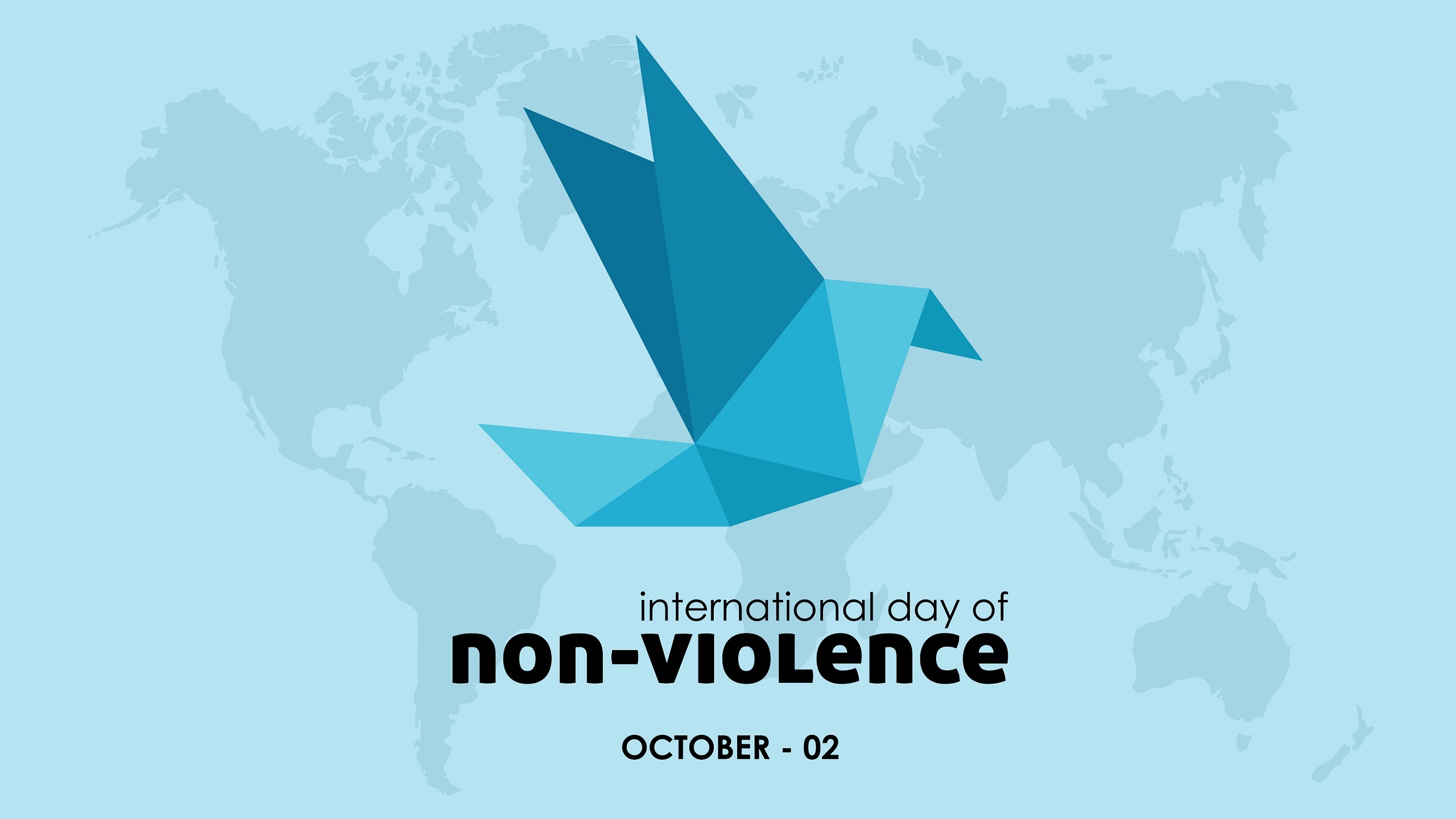World Honors Mahatma Gandhi With International Day of Non-Violence
Mahatma Gandhi, considered the father of India, was a lawyer, politician, social activist, and writer who led the nationalist movement against the British rule of India. A Hindu, he grew up observing Vaishnavism, the worship of the Hindu god Vishnu, as well as in the Indian religious tradition of Jainism, with its observance of nonviolence and the belief that everything in the universe is eternal.
Gandhi’s campaign against British rule of India employed nonviolent resistance, which was later emulated in movements for civil rights and freedom across the world. It is because of his philosophy and strategy of nonviolence that Gandhi’s birthday, October 2, is marked as the International Day of Non-Violence.
The principle of nonviolence – also known as nonviolent resistance – rejects the use of physical violence in order to achieve social or political change. Nonviolence is not passivity or submission, experts point out. Rather, nonviolence extends to protests such as demonstrations and vigils, as well as blockades and occupations or sit-ins.
The United Nations General Assembly adopted a resolution on June 5, 2007, designating each year on October 2 as the International Day of Non-Violence.
The resolution, with 140 cosponsors, reaffirms “the universal relevance of the principle of nonviolence” and the desire “to secure a culture of peace, tolerance, understanding, and nonviolence.”
The idea for the International Day of Non-Violence was first proposed in 2004 by Iranian political activist, lawyer, and human rights activist Shirin Ebadi, the founder of the Defenders of Human Rights Center in Iran who was awarded the Nobel Peace Prize in 2003, becoming the first Iranian and the first Muslim woman to receive the prize. Ebadi had actually proposed January 30, the day Gandhi was assassinated by a Hindu extremist, as the International Day of Non-Violence, but Sonia Gandhi and Archbishop Desmond Tutu together proposed the Indian leader’s birthday instead.
The text adopted by the General Assembly said: “Bearing in mind that nonviolence, tolerance, full respect for all human rights and fundamental freedoms for all, democracy, development, mutual understanding, and respect of diversity, are interlinked and mutually reinforcing, it invited all member states, United Nations organizations, regional and nongovernmental organizations, and individuals to commemorate the international day in an appropriate manner and to disseminate the message of nonviolence, including through education and public awareness.”
Last year on October 2, UN Secretary-General António Guterres tweeted in honor of the day: “Hatred, division and conflict have had their day. It is time to usher in a new era of peace, trust and tolerance. On this International Day of Non-Violence – Gandhi’s birthday – let’s heed his message of peace, and commit to building a better future for all.”
Hatred, division and conflict have had their day.
It is time to usher in a new era of peace, trust and tolerance.
On this International Day of Non-Violence – Gandhi's birthday – let's heed his message of peace, and commit to building a better future for all.
— António Guterres (@antonioguterres) October 2, 2021
Violence between countries and within countries especially in the Middle East and Gulf region is, unfortunately, common. The conflicts include civil war, terrorist insurgency, ethnic violence, and political unrest.
Half of the International Crisis Group’s 10 conflicts to watch in 2022 are centered in the MENA region. These include insurgencies involving Islamist groups in North Africa, the struggle that brought the Taliban to power in Afghanistan, Iran’s hostilities with the United States and Israel, the ongoing civil war in Yemen, and the Israeli-Palestinian conflict.
Meanwhile, according to the Council on Foreign Relations Global Conflict Tracker, there are currently 27 ongoing conflicts worldwide. Among the MENA countries included on this map, in addition to those mentioned above, are Syria, Lebanon, Egypt, Libya, Iraq, and Turkey.
A brief internet search does not turn up any MENA observance of the International Day of Non-Violence in recent years.
Gandhi believed that “just means lead to just ends” – that it is irrational to try to use violence to achieve a peaceful society. “Nonviolence is a weapon of the strong,” he said. He also said: “We may never be strong enough to be entirely nonviolent in thought, word, and deed. But we must keep nonviolence as our goal and make strong progress towards it.”
The International Day of Non-Violence comes on the heels of the September 21 observance of the International Day of Peace, a day devoted to strengthening the ideals of peace, through observing 24 hours of nonviolence and cease-fire.


